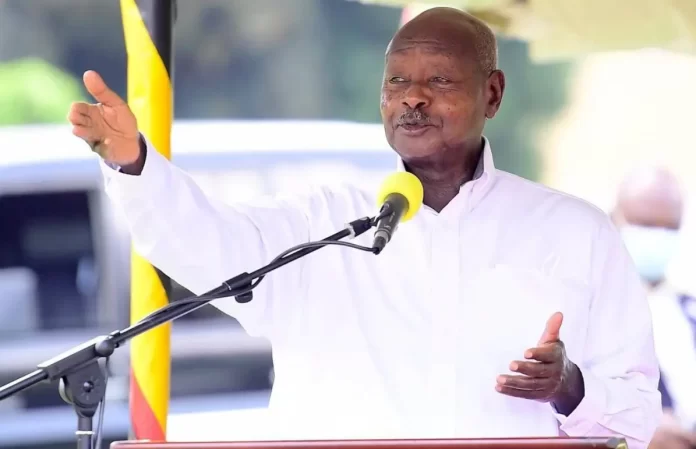President Yoweri Kaguta Museveni has said that Swahili is key for creating more employment opportunities for Ugandans in the region.
Museveni made these remarks while addressing graduands of the first Kiswahili class cohort that graduated at Kyambogo University grounds on Thursday, October 24, 2024. He appreciated them and hailed them for spearheading the journey to make all Ugandans learn to speak Swahili.
“Today I really want to appreciate the Kiswahili class of 2024 for embracing Swahili, and this is very key in creating employment opportunities for many Ugandans in the region,” he said.
Museveni also noted that Swahili is not just a language for any tribe but should be a language spoken by all Ugandans, East Africans, and the whole of Africa.
“Swahili doesn’t belong to any tribe in Africa, but it was adopted first from the coast as a language for traders, and it was to ease communication with the Arab traders at the coast. This is not a language for any tribe, but it’s a language that many people use in Africa, and Ugandans should embrace it as it comes with more opportunities both in Uganda and across borders,” he added.
The First Deputy Prime Minister and Minister in Charge of East African Affairs, Rebecca Alitwala Kadaga, said that promotion of Swahili has been long overdue, and now they have graduated the first cohort, and they will continue training many willing Ugandans, and with time, Uganda will catch up with other East African countries.
“In East Africa, Swahili is a common language, and here in Uganda, we are still behind compared to other countries in the East African community, and with this initiative, we want to catch up and make Ugandans appreciate Swahili not as a foreign language but as a local African language,” Kadaga said.
Read Also: MP Ssemujju Rejects Gov’t’s Proposal to Create National Council for Kiswahili
The NRM Secretary General, Richard Todwong, also emphasized how important the Swahili language will be for Ugandans doing business in the region.
“Our citizens are finding challenges in finding jobs in the region, and we feel that with this empowerment we shall be able to create more opportunities for Ugandans,” he said.
The Kiswahili class of 2024 graduated 350 students who were engaged and sponsored by the NRM secretariat and the office of the 1st deputy prime minister in charge of East African affairs, Kadaga.
The team that had been trained for 12 months has been tasked with also training the other people, as another group has already enrolled for a year’s training.
Read Also: Minister Kadaga flags off Kiswahili Cadres for a study tour to Tanzania, Zanzibar
Swahili is being taught in many East African countries and outside East Africa. Swahili is also taught in Ghana, Nigeria, Malawi, Namibia, Mozambique, and South Africa. Swahili is being taught at Witwatersrand University, the University of KwaZulu-Natal, and Pretoria University.
Swahili is already a common language in the East African community and is yet to be adopted as a language at the African Union as many countries continue embracing it.















